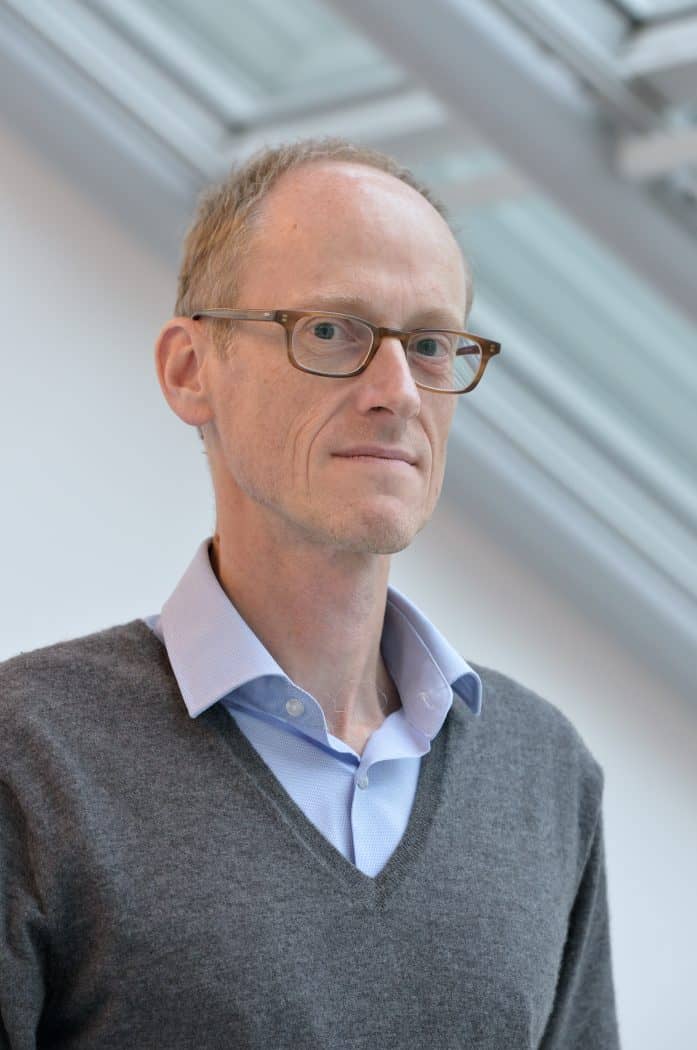Thierry Laugel is a pioneer amongst European biotechnology investors and now runs Kurma Partners, a VC who grows its own companies. We met him in Paris and talked about the early days of biotech, one of his most successful investments, and Pathoquest, a co-investment of Kurma and Verve Ventures.

Kurma Partners, Managing Partner
Thierry Laugel is founder and Managing Partner of Kurma Partners, a biotech VC based in Paris. Kurma manages EUR 350 million. Thierry has 20 years of experience in venture capital. He has a Ph.D. in Pharmacology and an MBA from INSEAD.
You started your career as a pharmacologist. How did you become a venture capitalist?
My career coincided with a big shift, namely the establishment of biotech companies in Europe. Developing medications based on genetic engineering was a concept that started in the US in the mid-1980s and came to Europe 10 years later. It was accompanied by a new entrepreneurial model based on venture capital, not on funds from a family or a bank. Since this was new, we were all beginners. Previously, I had worked in R&D for pharma. After completing INSEAD I didn’t want to go back to a large corporation, so I joined Flamel, a French biotech company. I always had a passion for medications, for developing something that helps people. And then, someone I knew asked me if I would join CDC innovation, one of the first European healthcare VC funds.
How was this pioneering fund established?
There weren’t many VC funds at this time so there was a need for evangelization. We managed to convince Caisse des Depots, an investment arm of the French state. Big insurance companies also became rapidly interested, which allowed us to invest sizeable sums. In the mid-1990s, a whole generation of VCs was formed. It was an exciting time.
“In the mid-1990s, a whole generation of VCs was formed. It was an exciting time.”
The Swiss biotech success story Actelion was founded in 1997 and went public several years later with a market capitalization of CHF 1 billion. You were one of the early financial backers of Actelion. How come?
We invested in 1999 in Actelion and honestly, nobody knew how to put a price tag on the company then. The development of the company, even in the early days, was just stellar. Never had any European investor seen something similar. But even then, the valuation of 50 million Actelion was seeking seemed excessive for most of us. It was a leap of faith. Luckily, I had worked on the same target in the industry, so I was convinced about Actelion’s approach. With an exit multiple of 20, this was one of my best investment decisions so far.
What led to the establishment of Kurma Partners?
After CDC I joined AGF Private Equity, an important actor in France. In the meantime, the ecosystem had matured. Whereas in the beginning, there was nothing, over time there were successful drugs, there was money and there was much more expertise. This led me to rethink what I wanted to do and adapt to new challenges. I wanted to create something, and take a leading role in developing the ecosystem further. With that goal, we launched Kurma in 2009 with the help of the Caisse des Depots and Natixis.
Kurma is a VC specialized on Biotech. How can you diversify to reduce risks?
In Biotech, you really want to be focused and understand the underlying technology. If you don’t, you don’t reduce the risk in your portfolio just by doing a random biotech deal. Diversification should be done prudently. We’re doing investments here, you need conviction and resilience to do them right. Even if one investment fails, you should cherish the learning opportunity. Our investors, who might be outside their comfort zone when it comes to biotech, trust us and we accompany them on the ride. We tell our investors it will get bumpy sometimes (laughs).
Kurma has a special approach, you’re not just investing, you also incubate new companies. Why?
We see ourselves as active company builders. We don’t just say good luck to entrepreneurs and hand over cash, we’re not just doling out well-meant advice. We want to anticipate novel trends in life sciences and we want to shape them actively. Our portfolio company PathoQuest is just one example of how we do that.
What is the trend PathoQuest relies on?
New generation sequencing technology. When we created PathoQuest, we were convinced that this technology will spread to the laboratories and become commonplace. PathoQuest has created a large database that allows identifying viruses and bacteria in blood samples. This is a revolution in diagnostics. Until now, in a blood test, doctors could only find what they were looking for. This means having to do a lot of tests and losing time until eventually, you find the cause of an infection. With this paradigm shift, doctors get exhaustive information about the pathogens that are present quickly and can rapidly administer more targeted antibiotics. The foundation for the company was laid in the world-famous Pasteur Institute in Paris, which is fighting against infectious diseases since 1887.
As you said, this is an emerging technology. What about the market then, is it already there?
Unearthing this kind of information thanks to bioinformatics gives PathoQuest unique expertise. It is applicable also in biosafety tests all biopharma companies have to do. All of the big names have already started to test PathoQuest’s offering. But the technology is so strong that they’ll switch to routine testing and much larger contracts soon.
PathoQuest is now seeking external funding. If it is such a promising company, why doesn’t Kurma finance it alone?
Because we see a value inflection point and want to accelerate the development of the company. That necessitates bringing other investors in. When they know that biosafety analysis has margins of 90%, they realize what kind of opportunity this is.
How does your company incubation model work?
We rarely err in deciding which technology to back because we’re looking for scientific excellence like in the case of PathoQuest. When we start a company, we bring in a CEO that has experience and assign him clear goals. In the incubation phase, we’re very frugal, because in our domain it can take very long to develop a technology to maturity. It always takes longer than you think initially. With PathoQuest, the incubation phase lasted 4 years. An ordinary VC doesn’t have this kind of patience. By being prudent and not investing too much, we can afford to be patient. But when the right time comes, we team with others and put the foot on the gas.
“With PathoQuest, the incubation phase lasted 4 years. An ordinary VC doesn’t have this kind of patience.”
You seem to be quite happy about how things are going. What is the thing you like most about your job?
With a team of 15 people and 5 venture partners, Kurma now has attained a critical mass of resources to see 4 or 5 projects like this through simultaneously. They are our babies, and we love to see them grow.
Written by
WITH US, YOU CANCO-INVEST IN DEEP TECH STARTUPS

Verve's investor network
With annual investments of EUR 60-70 mio, we belong to the top 10% most active startup investors in Europe. We therefore get you into competitive financing rounds alongside other world-class venture capital funds.
We empower you to build your individual portfolio.
More News
02.08.2022
“I like to make founders successful”
Former tech entrepreneur Nicole Herzog prefers investing in startups rather than safe assets such as real estate. She argues that because entrepreneurs learn to cope with uncertainty and risk, they have a different mindset than traditional investors.
17.06.2019
“There is no good similar treatment”
Prof. Jonel Trebicka is an expert for liver diseases. He is supervising clinical trials of Versantis' new drug to treat an acute form of cirrhosis, which is very difficult to treat.
31.05.2019
“We’re selling actionable information”
PathoQuest’s CEO Jean-François Brepson explains how a new test indirectly helps fight “superbugs” and why he left a big pharma company to lead a startup.
Startups,Innovation andVenture Capital
Sign up to receive our weekly newsletter and learn about investing in technologies that are changing the world.




